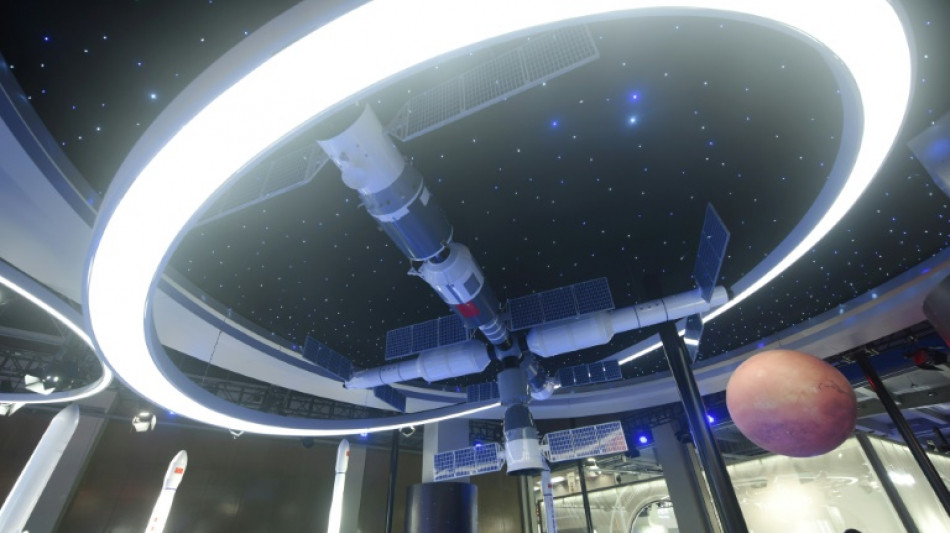
-
 Trump tells Iranians to 'keep protesting', says 'help on its way'
Trump tells Iranians to 'keep protesting', says 'help on its way'
-
Italian Olympians 'insulted' by torch relay snub

-
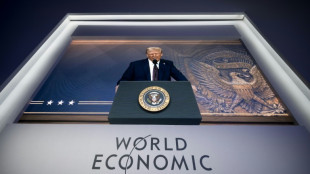 Davos braces for Trump's 'America First' onslaught
Davos braces for Trump's 'America First' onslaught
-
How AI 'deepfakes' became Elon Musk's latest scandal

-
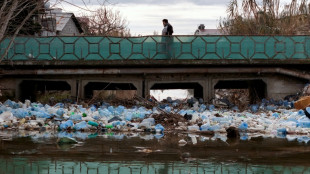 Albania's waste-choked rivers worsen deadly floods
Albania's waste-choked rivers worsen deadly floods
-
Cancelo rejoins Barca on loan from Al-Hilal

-
 India hunts rampaging elephant that killed 20 people
India hunts rampaging elephant that killed 20 people
-
Nuuk, Copenhagen mull Greenland independence in Trump's shadow
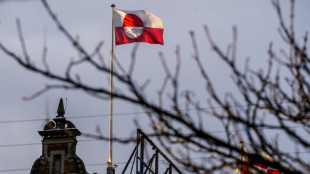
-
 WHO says sugary drinks, alcohol getting cheaper, should be taxed more
WHO says sugary drinks, alcohol getting cheaper, should be taxed more
-
Arteta urges Arsenal to learn from League Cup pain ahead of Chelsea semi

-
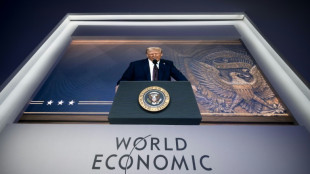 Davos elite, devotees of multilateralism, brace for Trump
Davos elite, devotees of multilateralism, brace for Trump
-
Spanish star Julio Iglesias accused of sexual assault by two ex-employees

-
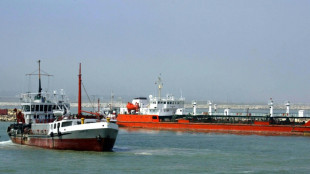 Trump's Iran tariff threat pushes oil price higher
Trump's Iran tariff threat pushes oil price higher
-
US consumer inflation holds steady as affordability worries linger
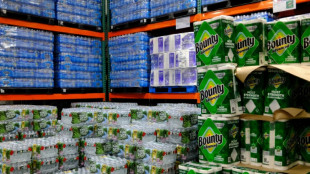
-
 Iran to press capital crime charges for 'rioters': prosecutors
Iran to press capital crime charges for 'rioters': prosecutors
-
Denmark, Greenland set for high-stake talks at White House

-
 Iranian goes on trial in France ahead of possible prisoner swap
Iranian goes on trial in France ahead of possible prisoner swap
-
Cold winter and AI boom pushed US emissions increase in 2025
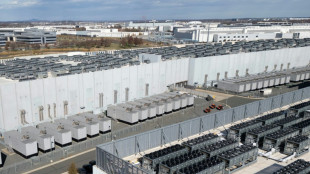
-
 Hong Kong activist investor David Webb dies at 60
Hong Kong activist investor David Webb dies at 60
-
Try to be Mourinho and I'll fail: new Real Madrid coach Arbeloa

-
 Vingegaard targets Giro d'Italia and Tour de France double
Vingegaard targets Giro d'Italia and Tour de France double
-
South Korean prosecutors demand death penalty for ex-leader Yoon

-
 Iwobi hails Nigerian 'unity' with Super Eagles set for Morocco AFCON semi
Iwobi hails Nigerian 'unity' with Super Eagles set for Morocco AFCON semi
-
Le Pen appeal trial opens with French presidential bid at stake

-
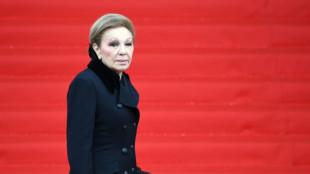 Iran ex-empress urges security forces to join protesters
Iran ex-empress urges security forces to join protesters
-
Sudan 'lost all sources of revenue' in the war: finance minister to AFP

-
 Freezing rain hampers transport in Central Europe
Freezing rain hampers transport in Central Europe
-
Nuuk, Copenhagen cautiously mull Greenland independence
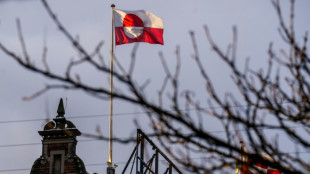
-
 'Proving the boys wrong': Teenage racers picked for elite driver programme
'Proving the boys wrong': Teenage racers picked for elite driver programme
-
Mbappe absent from training as Arbeloa takes charge at Real Madrid

-
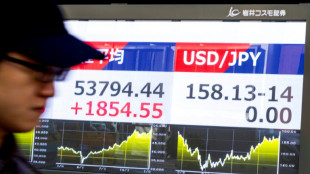 Iran worries push up oil price as world stocks diverge
Iran worries push up oil price as world stocks diverge
-
Volvo Cars pauses battery factory after fruitless partner search
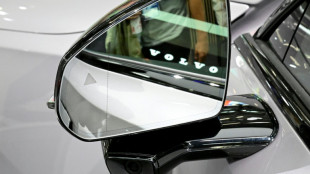
-
 Social media harms teens, watchdog warns, as France weighs ban
Social media harms teens, watchdog warns, as France weighs ban
-
Central bank chiefs voice 'full solidarity' with US Fed, Powell

-
 Greece airspace shutdown exposes badly outdated systems
Greece airspace shutdown exposes badly outdated systems
-
France climate goals off track as emissions cuts slow again

-
 Boeing sells 50 737 MAX jets to leasing group ACG
Boeing sells 50 737 MAX jets to leasing group ACG
-
Freezing rain paralyses transport in Central Europe

-
 Man Utd reach deal to appoint Carrick as interim boss: reports
Man Utd reach deal to appoint Carrick as interim boss: reports
-
Trump hits Iran trade partners with tariffs as protest toll soars

-
 Is China a threat to Greenland as Trump argues?
Is China a threat to Greenland as Trump argues?
-
Takaichi says urged S. Korea's Lee to help 'ensure regional stability'

-
 South Korean prosecutors set to demand heavy sentence for Yoon
South Korean prosecutors set to demand heavy sentence for Yoon
-
Honduras electoral authorities reject vote recount

-
 Tractors in Paris to protest EU's trade deal with S. America
Tractors in Paris to protest EU's trade deal with S. America
-
Asian markets rise, Iran worries push up oil
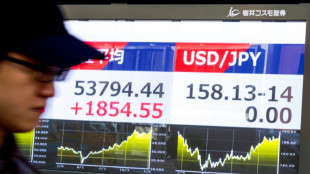
-
 Williams loses golden oldie clash in final Australian Open warm-up
Williams loses golden oldie clash in final Australian Open warm-up
-
Kyrgios stands by decision to skip Australian Open singles

-
 Disaster losses drop in 2025, picture still 'alarming': Munich Re
Disaster losses drop in 2025, picture still 'alarming': Munich Re
-
Williams, 45, loses in first round of final Australian Open warm-up

| SCS | 0.12% | 16.14 | $ | |
| CMSC | -0.21% | 23.26 | $ | |
| BCC | -0.21% | 82.79 | $ | |
| RIO | 1.07% | 83.775 | $ | |
| NGG | -2.7% | 77.66 | $ | |
| GSK | -0.9% | 49.94 | $ | |
| RBGPF | 1.13% | 82.5 | $ | |
| CMSD | -0.44% | 23.761 | $ | |
| BCE | -0.32% | 23.765 | $ | |
| JRI | -0.15% | 13.79 | $ | |
| RYCEF | -0.06% | 17.28 | $ | |
| VOD | -2.61% | 13.205 | $ | |
| BP | 1.95% | 35.095 | $ | |
| AZN | 0.39% | 94 | $ | |
| BTI | 1.51% | 56.535 | $ | |
| RELX | -1.6% | 42.095 | $ |

China launches second of three space station modules
China on Sunday launched the second of three modules needed to complete its new space station, state media reported, the latest step in Beijing's ambitious space programme.
The uncrewed craft, named Wentian, was propelled by a Long March 5B rocket at 2:22 pm (0622 GMT) from the Wenchang launch centre on China's tropical island of Hainan.
A quarter of an hour later, an official from the China Manned Space Agency (CMSA) confirmed the "success" of the launch.
Hundreds of people gathered on nearby beaches to take photos of the launcher rising through the air in a plume of white smoke.
After around eight minutes of flight, "the Wentian lab module successfully separated from the rocket and entered its intended orbit, making the launch a complete success," the CMSA said.
Beijing launched the central module of its space station Tiangong -- which means "heavenly palace" -- in April 2021.
Almost 18 metres (60 feet) long and weighing 22 tons (48,500 pounds), the new module has three sleeping areas and space for scientific experiments.
It will dock with the existing module in space, a challenging operation that experts said will require several high-precision manipulations and the use of a robotic arm.
"This is the first time China has docked such large vehicles together, which is a delicate operation," said Jonathan McDowell, an astronomer at the Harvard-Smithsonian Center for Astrophysics.
He said until the next module arrives, the space station will have a "rather unusual L-shape" which will take a lot of power to keep stable.
"These are all technical challenges that the USSR pioneered with the Mir station in the late 1980s, but it's new to China," he told AFP.
"But it will result in a much more capable station with the space and power to carry out more scientific experiments."
Wentian will also serve as a backup platform to control the space station in the event of a failure.
The third and final module is scheduled to dock in October, and Tiangong -- which should have a lifespan of at least 10 years -- is expected to become fully operational by the end of the year.
- Fast-paced space plan -
Under Chinese President Xi Jinping, the country's plans for its heavily promoted "space dream" have been put into overdrive.
China has made large strides in catching up with the United States and Russia, where astronauts and cosmonauts have decades of experience in space exploration.
"The CSS (Chinese Space Station) will complete its construction... in one and half a year which will be the fastest in history for any modular space station," said Chen Lan, analyst for the site Go-Taikonauts.com, which specialises in China's space programme.
"In comparison, the constructions of Mir and the International Space Station took 10 and 12 years respectively."
China's space programme has already landed a rover on Mars and sent probes to the Moon.
In addition to a space station, Beijing is also planning to build a base on the Moon and send humans there by 2030.
China has been excluded from the International Space Station since 2011, when the United States banned NASA from engaging with the country.
While China does not plan to use its space station for global cooperation on the scale of the ISS, Beijing has said it is open to foreign collaboration.
E.Aziz--SF-PST



